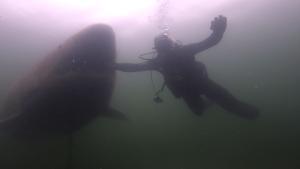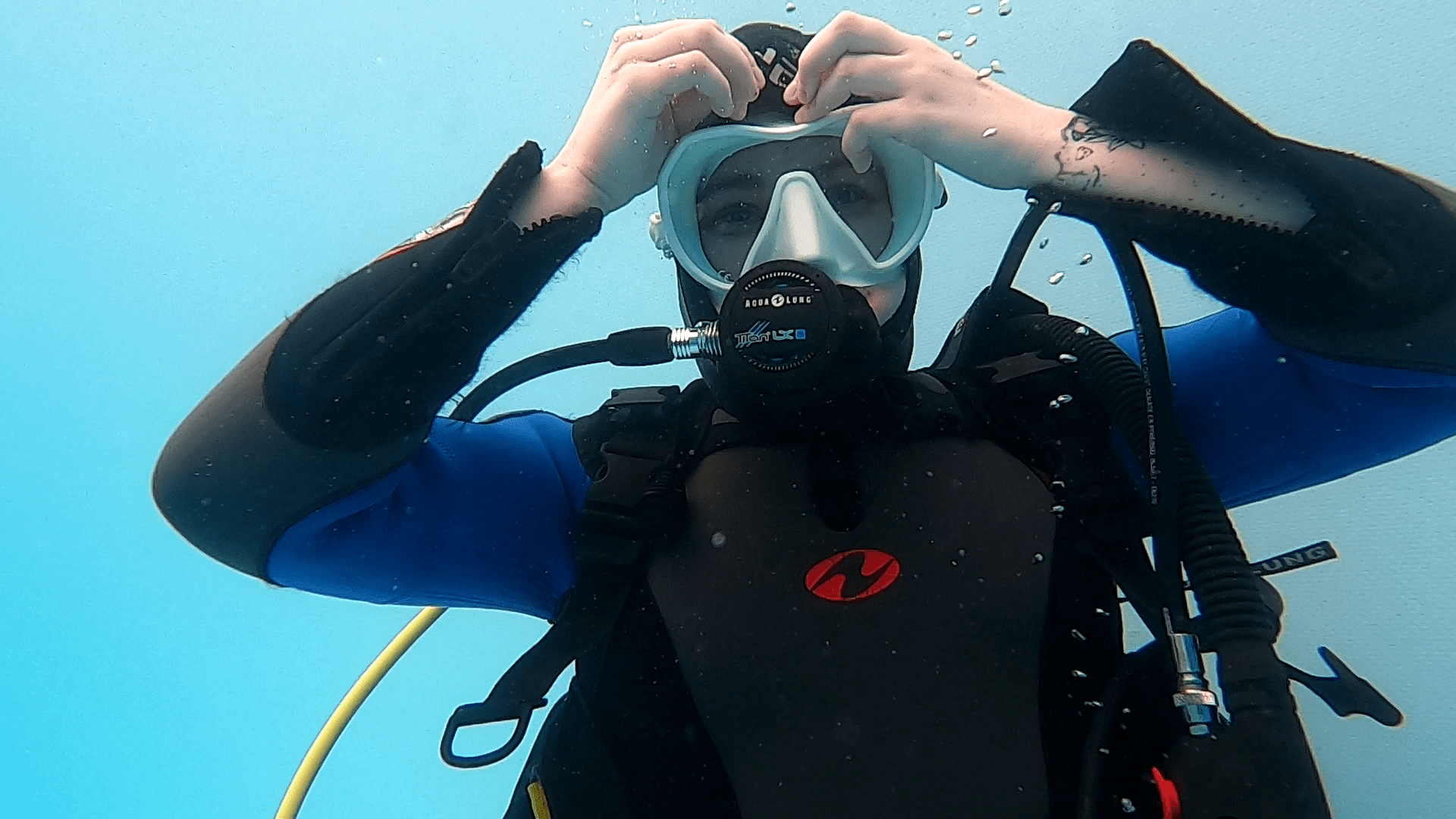Table of Contents
What did you do in your wetsuit?!
When nature calls while diving, a dilemma arises. When you want to urinate, do the following:
- Stop your interesting encounter with the underwater world and head back to the boat (with your friend in tow), who will frantically wade and rush to take off his wetsuit in a small cabin.
- Pachura in his wetsuit. Easy, instant relief and no ruined diving.
There is a famous saying among divers: there are those who pee in a wetsuit and there are those who lie about it. We're not 100% sure if this is true, but there are many myths and misconceptions we can clear up about emptying your bladder underwater.
- Can you pee in a wetsuit without attracting sharks?
- And how do you get the smell of urine out of a wetsuit after it's on?
- Read on for some truths and tips.

Drinking less fluid before diving prevents the need to urinate?
It is never a good idea to dive without fluids or dehydrated. Dehydration not only increases the likelihood of decompression sickness, but the human body naturally tends to produce urine when immersed in cool water.
There is a physiological effect called immersion diuresis. When you dive into water that is colder than the ambient air temperature, vasoconstriction (narrowing of the blood vessels) occurs. The extra blood is sent to your central organs, which your body interprets as fluid overload. The body signals the kidneys to produce urine, and the brain tells it it's time to empty the vena cava.
Simply put: warm air + cold water = feeling the need to pee.
So instead of trying to quench your thirst, focus on reducing the cold during your dive. Wear the right wetsuit and consider adding gloves, a hood or a wetsuit. Don't drink coffee or espresso - the caffeine is there diuretic, so drinks like tea and coffee will make you want to urinate even more.
Be a diver who drinks enough fluids
Always empty your bladder before diving, always do it so that it becomes a habit!
Here's another reason to make sure you're drinking enough water. When the body is dehydrated, urine has a stronger smell and color. So do yourself (and everyone else on the boat) a favor and stay hydrated!
Suffering and containment are risky for the diver's health
Fighting the urge to urinate and holding it in can lead to a urinary tract or bladder infection, especially in women. You don't want to deal with this extremely painful condition on a dive trip – especially in a place where the antibiotics needed to alleviate the problem may not be available. So let go.
Urine can damage your wetsuit if not properly cared for
Under normal conditions, urine will not damage the seals or unglue the seams of a modern wetsuit. Divers using an insulated wetsuit should wash the suit extra thoroughly with a suitable cleaner after it gets dirty (we hope you do this regardless). While urine doesn't damage a wetsuit, a dirty, unwashed wetsuit stinks and can cause a skin condition similar to diaper rash (not to mention wetsuit yeast).
How to take care of your wetsuit if you have to pee in it?
Here are three tips to keep your neoprene fresh and smelling good:
- Rinse thoroughly in fresh, warm water after each dive
- Give it a good wash every now and then (or if it's smelly) with wetsuit cleaner and a soft sponge (never in the washing machine!)
- Do not put it in the bag after use; hang it properly in the air, dry it and store it
- One diving professional suggested adding – Antibacterial Mouthwash to the water
- One diving professional from the island of Cyprus recommended adding fabric softener to the water, which gives flexibility to the wetsuit and also a pleasant aroma.
Does peeing help keep you warm?
Proponents of peeing often describe how peeing can make a cold dive much warmer. Unfortunately, the result is temporary and counterproductive.
Warm urine tricks your body into thinking it's no longer in a cold environment. So when cold water hits your wetsuit, your body is not prepared. Now you are worse off than before and your body has to expend extra energy to heat up the cold water. If fresh seawater isn't being introduced, either because your neoprene has great sealing cuffs or you haven't 'washed out', that means you're soaking in your own urine. It's disgusting. There are much better ways to stay warm while diving.
Are Sharks attracted to the smell of urine?
Does peeing in a wetsuit attract sharks?
No. This myth has been debunked by several scientists who claim that it is okay to pee in the ocean. So, go ahead and set yourself free with complete peace of mind.
Urinating in a wetsuit, the correct way is to flush immediately
Now that we've covered some myths and misconceptions, let's talk about pee etiquette.
Always rinse the wetsuit thoroughly!
Don't wait until you're walking on the beach or on the deck of a boat to be instructed by your colleagues! Take the time to rinse your wetsuit properly immediately after urinating, diving. Below are two methods. For maximum efficiency, consider using both.
- Grab the chest of the wetsuit and pull it away from your body a few times.
- Open the seals on the hands, feet and neck of the suit and let fresh water in there.
Repeat this 5-10 times.
How professional divers urinate in a wetsuit
Take care of yourself at the beginning of the dive, rinse your suit instead of waiting until the end of the dive. This creates a greater opportunity for urine to be flushed out. Avoid foods that make urine dark and smelly, such as: asparagus, Brussels sprouts, garlic and salmonView postm.
When urinating underwater, keep a decent distance from others. It's a solid sign when the diver stops, strikes a strange pose, and stares with an expression somewhere between awkwardness and relief.
Do not urinate in a rented wetsuit or one provided during the course. Consider the person who has to clean it.
If your wetsuit has had one too many bathroom breaks, visit diving club "Divings", Dive Shop, to buy a wetsuit cleaner or treat yourself to a brand new wetsuit. Most wetsuits only last three to five years, and it has been observed that many divers hang on to their old diving gear for far too long.
Where to apply for diving training in Latvia?
🤿😀 If you are looking for advice on diving or advice on the sport of diving with or without balloons, call a PADI diving instructor (PADI diving instructor and lecturer Valters Preimanis) t. 220-77-202 (Whatsapp 220-77-202).

Related articles
- Diving courses, diving training in Mārupe region
- Pre-Dive Safety Check (BWRAF)
- First aid for victims in water
- A survival kit that is necessary in cold water, in an emergency situation
Photo – Diving club "Divings", 2007, July 22

